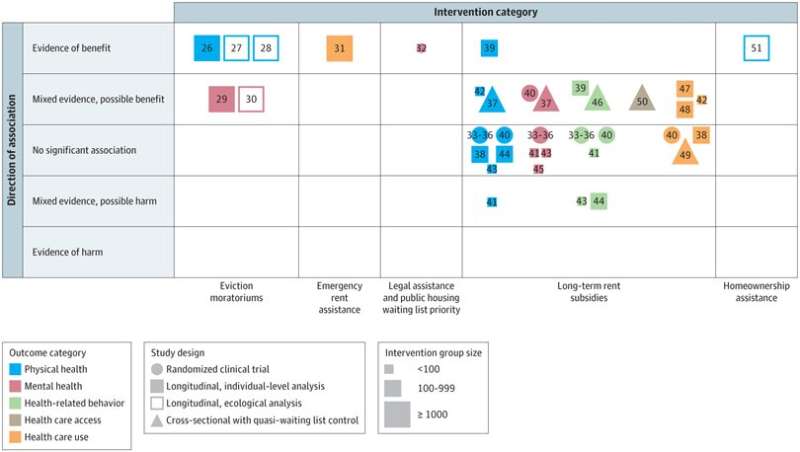Study finds weak evidence that interventions to boost housing affordability and stability promote better health

Research finds low-certainty evidence that programs such as emergency rent assistance, legal assistance with waitlist priority for public housing, long-term rent subsidies and homeownership assistance lead to positive health outcomes.
It is known that housing insecurity leads to increased risk for both homelessness and poor health. But do interventions that prevent housing insecurity lead to improved health?
The researchers examined 26 clinical trials and observational studies on interventions to mitigate housing insecurity on the health of vulnerable populations.
Existing interventions may need to be paired with other efforts to address the structural determinants of health.
"This work is a response to the increasingly clear evidence that difficulty with housing affordability and stability is common and tied to adverse health outcomes, even before someone experiences homelessness," said lead author Dr. Katherine Chen, health sciences clinical instructor at the David Geffen School of Medicine at UCLA and doctoral candidate in health policy and management at the UCLA Fielding School of Public Health.
"As health care systems and insurers respond to increasing opportunities to invest in housing as a determinant of health, further research is needed to clarify where along the housing insecurity pathway interventions should focus for the most effective and equitable health impact."
The study is published in JAMA Network Open.
More information: Katherine L. Chen et al, Association of Promoting Housing Affordability and Stability With Improved Health Outcomes, JAMA Network Open (2022). DOI: 10.1001/jamanetworkopen.2022.39860



















